

About Esophageal Cancer
Cancer of the esophageal tube i.e. the tube that connects the throat to the stomach (also known as the food pipe) (esophagus), is also called esophageal cancer. Esophageal cancer starts in the inner layer of the esophageal wall and spreads outward.


Risk Factors & Prevention
The risk of developing esophageal cancer is highest in those between the ages of 45 and 70, and it affects men three to four times more frequently than it affects women.
Some of the risk factors are:
- Consumption of Tobacco & Alcohol
- Smoking
- Barrett’s esophagus
- Consumption of red meat
- Reduced intake of fruits and vegetables
- Obesity
- Helicobacter Pylori Infection
How can it be prevented?
- Quit Tobacco products and avoid alcohol
- Maintain a proper diet, body weight, and physical activity
- Get treatment for Barrett’s esophagus
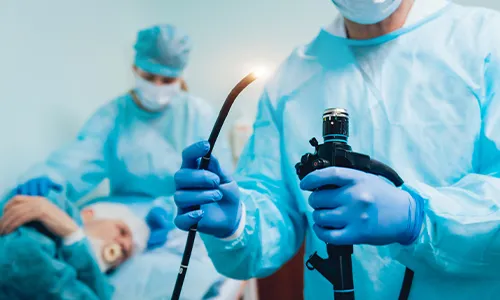

Screening
Regular checkups may be indicated for people with Barrett’s esophagus. The likelihood of successful treatment is increased by early diagnosis.
- Endoscopic examinations
- Biopsy
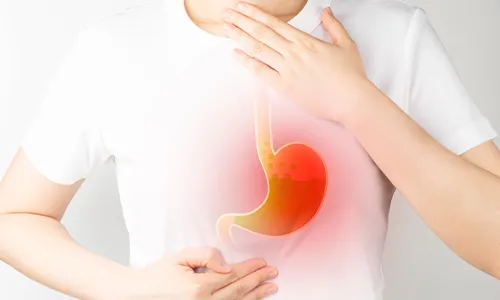

Symptoms & Signs
- Pain with swallowing OR swallowing difficulty
- Burning or pressure in the chest
- Bloating or heartburn
- Vomiting
- Frequent food choking
- Unaccounted-for weight loss
- Hoarseness or coughing
- Throat pain or discomfort beneath the breastbone
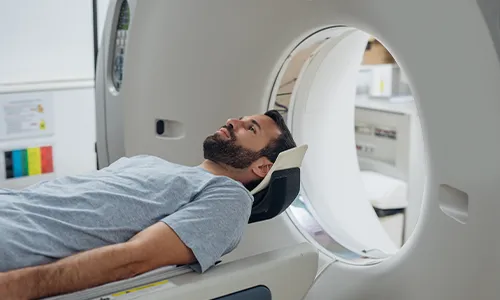

Diagnosis
Doctors conduct different Types of tests for the signs and symptoms:
- Upper endoscopy
- Endoscopic ultrasound
- CT scan
- MRI
- PET-CT scan
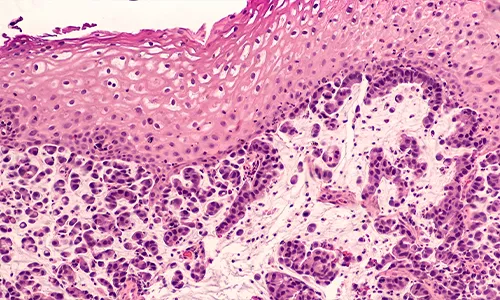

Sub-Types and Stages
Esophagealcancer comes in two primary subtypes:
- Squamous cell carcinoma
- Adenocarcinoma
Stages
- Clinical stage: based on the diagnostic imaging.
- Pathological stage: Called the surgical stage.
- Post-neoadjuvant stage: Determined after administration of Chemotherapy or radiation, which is given prior to surgery.
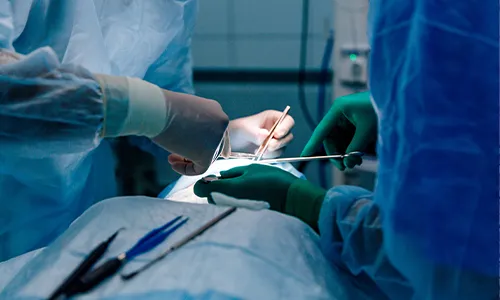

Treatment Modalities
Surgical Oncology
The most typical form of treatment for esophageal cancer has historically been surgery. Most patients with locally advanced esophageal cancer should get chemotherapy or combination therapy (Chemotherapy and Radiation) before having surgery because it has been proven to prolong life.
Medical Oncology
During treatment, the most common method of administering medication is through an intravenous (IV) cannula that is inserted into a vein using a needle.
The following types of medication are used to treat esophageal cancer:
- Chemotherapy
- Targeted therapy
- Immunotherapy
Radiation Oncology
The treatment for esophageal cancer is by giving External-Beam Radiation Therapy (EBRT).


Coping with Treatment
Along with the medical side effects of Esophagus cancer therapy, patients also deal with the financial burden of cancer care and the emotional and social impacts. MOC provides facility of psycho Onco-Counseling and Nutritional counseling to help patients.


Do’s & Don’ts during Treatment
Do’s
- Consume calorie-rich and protein-rich foods.
- Eat small meals
- Maintain proper weight
Dont’s
- Quit Tobacco & Alcohol
- Avoid treatment interruptions
- Avoid foods that are hard to swallow
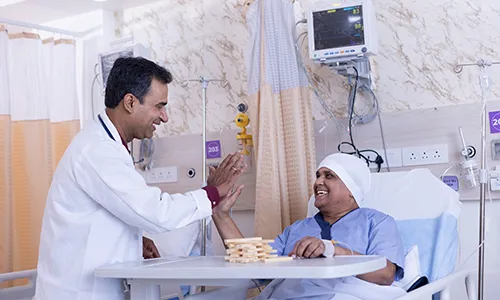

Post-Treatment Support
Post-treatment Esophageal cancer survivors can go through long-term side effects of treatment. Long-term and late consequences may follow from physical and emotional changes. Survivors should talk with people who already have this cancer.


Follow-ups Cancer Care Plan
Post-treatment, one must request a follow-up treatment plan. Doctors provide a personalized treatment plan based on the type and stage of cancer.
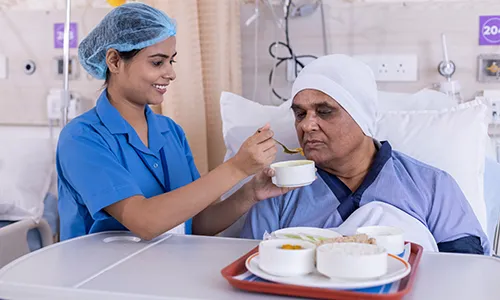

Surveillance and monitoring for Signs & Symptoms of Recurrence
Cancer recurrence is a key concern for cancer survivors, with other health issues. Your treatment options, should the cancer return at any point, will be determined by the location of the disease, the previous treatments you underwent, and your general health.


FAQs
-
Potential side effects of surgery for esophageal cancer?
Heartburn, discomfort and difficulty swallowing.
-
How to prepare for esophageal cancer surgery?
Start by Mentally Preparing yourself.





